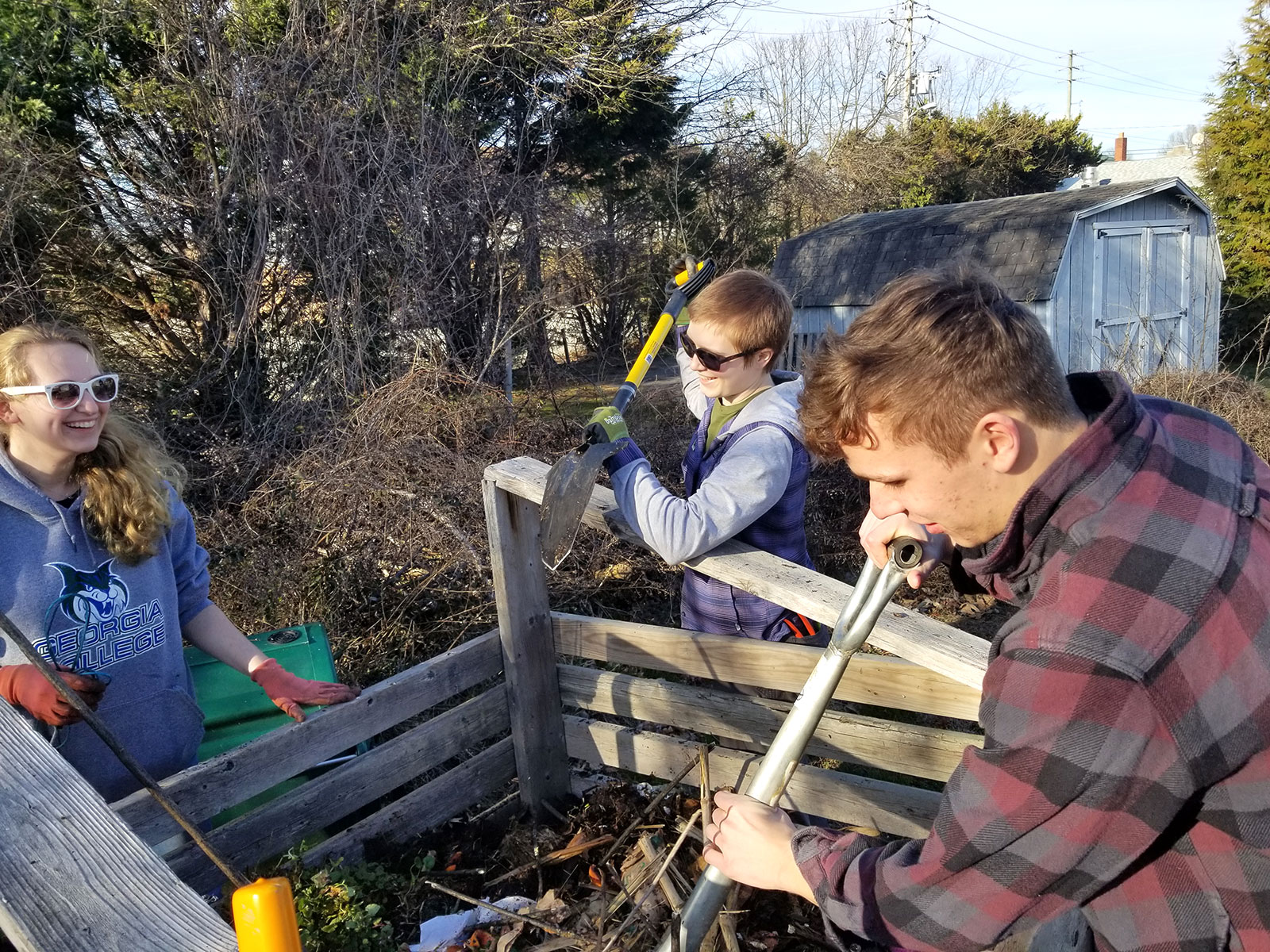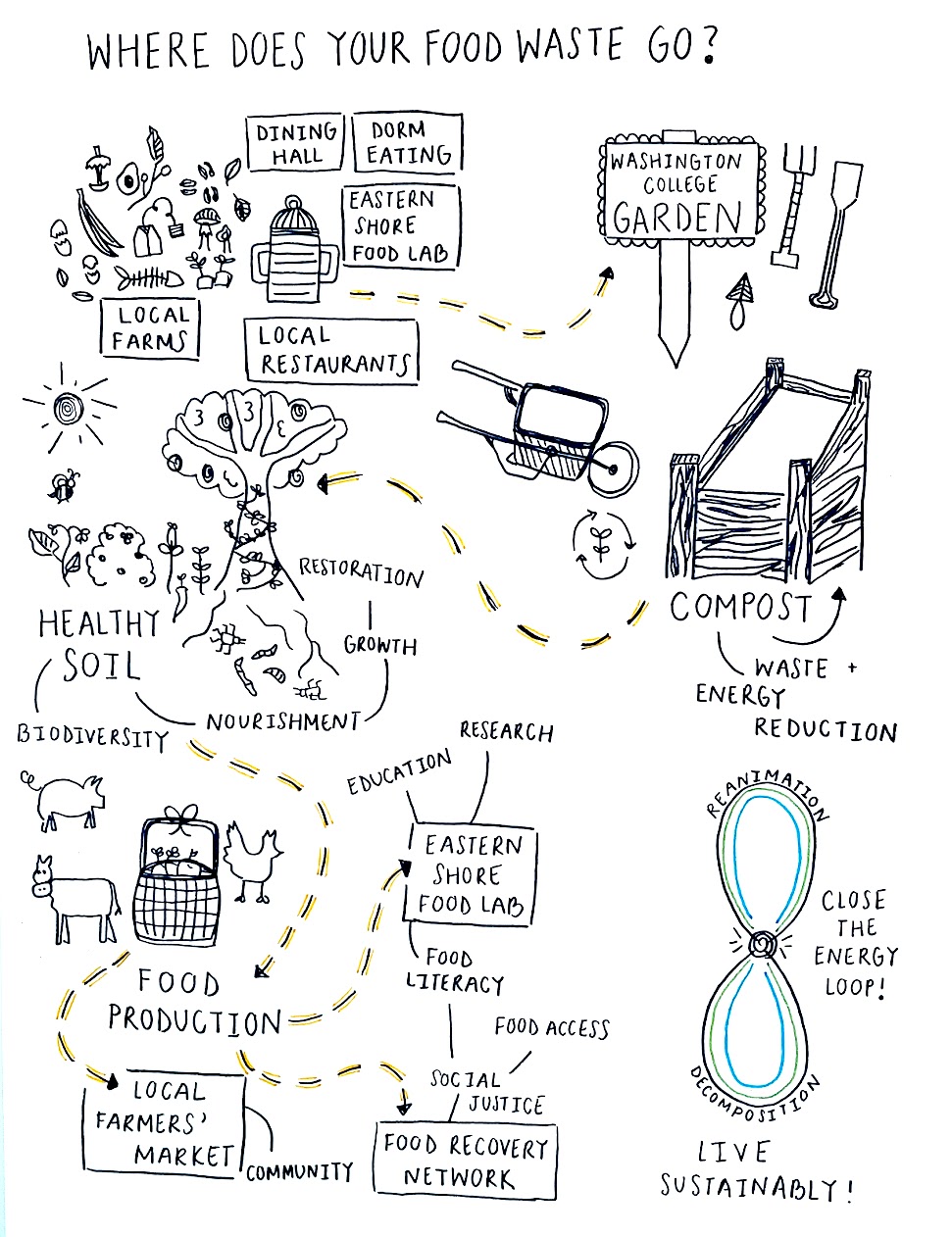Compost Program
Because nutrient density starts and ends with the soil, the Compost Club works to institutionalize this ecologically sensible and time-honored tradition on campus.
3-Bin System Composting
Since the Campus Garden was founded in 2012, students have used permaculture methods that accelerate natural processes to create finished compost in 18 days. Their technique, which they teach in workshops for community members, can be easily replicated in backyards to reduce household organic waste.
 Students create a new 18-day compost pile at the campus garden.
Students create a new 18-day compost pile at the campus garden.
Aerated Static Pile Composting
The Compost Club uses a small micro-bin to test the recipe composition for efficient composting in a large aerated static pile, in which a small fan blows oxygen into a pile to hasten its decomposition into finished compost. This method can accommodate a large volume of food scraps and offset some of the organic waste from the Dining Hall. The compost finishes in 30 days.
Vermicomposting
The Compost Club promotes vermicomposting around campus, and even has a outdoor worm pit thermally regulated with a salvaged cooler, buried in the ground.
Soil Food Web Education
The Compost Club screens films, coordinates field trips to learn about composting systems, and is working to establish more educational demonstration examples of soil-building techniques in the Campus Garden.
Students representing diverse majors are involved in the campus composting effort, and have an eye toward becoming self-sufficient in operational costs, helping to strengthen environmental and financial stewardship of the college.
To learn more about the Compost Club, contact Zoe%20Brookbank%20%2726.
